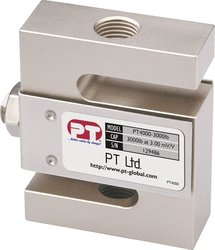Load Cell Calibration Service
-

Quick Turnaround Guaranteed
We understand that time is critical. That’s why we prioritise fast, efficient service without compromising on quality or accuracy. Whether on-site or in-house, our streamlined processes ensure minimal downtime and maximum reliability—every time.
-

On-site Calibration Service
Our expert technicians come to you, providing convenient and efficient calibration at your location. Minimise downtime and maintain compliance with our fully equipped mobile calibration units—delivering accuracy, reliability, and quick turnaround on-site.
-

NATA Accredited
Our calibration services are NATA accredited to ISO/IEC 17025, ensuring the highest standards of accuracy, reliability, and compliance. Trust in certified expertise backed by over 33 years of industry experience.
Since 1992 NATA Accredited (ISO/IEC 17025) – includes compliance with AS 1379.
-

24-Hour Breakdown Service
We offer round-the-clock support to minimise downtime and keep your operations running. Our 24-hour breakdown service ensures fast response and expert assistance whenever you need it most.
Over 33 Years of Expert Calibration
Experience Independent Scale Service has more than 33 years of expertise in calibrating all types of load cells, including tension and compression models. Our team of highly skilled calibration engineers offers both on-site and in-house services. We utilise two trusted calibration methods: deadweight and comparison using certified reference load cells.

Calibration & Service Capabilities
- Calibration Range: Up to 50,000 kg / 50 T / 490,000 N / 490 kN
- Types: Compression and Tension
- Load Cell Variants: Analog, Hydraulic, Digital
- On-site Calibration: Available across Sydney, Melbourne, and throughout Australia
- Laboratory Calibration: Offered at our accredited facilities in Sydney and Melbourne
📞 Contact Us Today for Expert Support
Our Current Clients
Load Cell Types & Applications WeCalibrate
-
Compression Load Cells
- Measures: Compressive force
- Applications: Truck scales, batching plants, silos, hoppers
-
Tension Load Cells
- Measures: Tensile force (pulling)
- Applications: Crane scales, tensile testing, suspended weighing
-
Universal / Tension & Compression Load Cells
- Measures: Both compression and tension
- Applications: Versatile force measurement, testing machines
-
Shear Beam Load Cells
- Measures: Shear force
- Applications: Platform scales, tanks, process weighing systems
-
Bending Beam Load Cells
- Measures: Bending force
- Applications: Small scales, conveyor systems, medical equipment
-
S-Type Load Cells
- Measures: Tension and compression (S-shaped design)
- Applications: Hanging scales, batching, material testing
-
Canister / Column Load Cells
- Measures: High-capacity compression
- Applications: Heavy-duty industrial use, silo and truck scales
-
Pancake / Low-Profile Load Cells
- Measures: Compression or tension in compact spaces
- Applications: Aerospace, automotive, precision testing
-
Button Load Cells
- Measures: Compression in confined spaces
- Applications: Embedded systems, tight-space measurements
-
Hydraulic Load Cells
- Measures: Force via hydraulic pressure
- Applications: Hazardous/explosive environments
-
Pneumatic Load Cells
- Measures: Force via compressed air
- Applications: Food industry, clean rooms, spark-free zones
Compliance with International Standards
-
ISO 376 – Calibration of Force-Proving Instruments
- For load cells used in verifying material testing machines
- Traceable to national/international standards
- Classification: Class 00 (highest accuracy) to Class 2
- Ideal for R&D, QA, and mechanical testing labs
-
ISO 7500-1 – Verification of Testing Machines
- Standard for verifying tensile and ompression testing machines
- Ensures force-measuring accuracy and traceability
- Commonly used in laboratories testing metals, plastics, and composites
Spare Parts & Components – Always inStock
We maintain an extensive inventory of critical components to minimise downtime.
Brands Supported:
PT Global, Rinstrum, Anyload, Kelba, Command Alkon, Manuflo, and more
Common Stock Items:
- Load Cells
- Weighing Indicators
- Junction Boxes
- Threaded Rods & Nuts
Faq
Introduction
A load cell, a force measurement device, plays a critical role in applications ranging from industrial automation to scientific research. To ensure its accuracy and reliability, calibrating a load cell is an essential process. Calibration aligns the load cell's output signals with the actual forces applied, minimizing errors and enabling precise measurements.This guide explores the fundamentals, methods, and importance of load cell calibration, providing a comprehensive understanding of the procedure and its implications for various industries.
What Is Load Cell Calibration?
Load cell calibration is the process of verifying and adjusting the response of a load cell to applied forces. The goal is to ensure that the output signals of the load cell correspond accurately to the measured force. This process involves comparing the load cell’s output with a known standard or reference, and making adjustments to align the readings.
Key Reasons for Calibration
Calibration is crucial for several reasons:
• Accuracy: Calibration ensures the load cell provides reliable and precise measurements.
• Compliance: Many industries require equipment to meet specific standards and regulations.
• Consistency: Regular calibration prevents deviations and maintains consistency in measurements.
• Operational Efficiency: Accurate load cells contribute to better decision-making and optimized processes.
Types of Load Cell Calibration
There are multiple methods of load cell calibration, each tailored to different needs and levels of precision:
Factory Calibration
This type of calibration occurs during the manufacturing process. The load cell is calibrated using certified weights and a controlled environment. Factory calibration ensures the load cell meets the manufacturer’s specifications before it is shipped to the user.
Field Calibration
Field calibration is performed onsite, often in environments where the load cell operates. It is beneficial for ensuring real-world accuracy, particularly in scenarios where environmental factors might influence readings.
Deadweight Calibration
Deadweight calibration is a precise method that uses certified weights to apply known forces to the load cell. It is often considered the gold standard in calibration due to its high accuracy.
Comparison Calibration
This technique involves comparing the output of the load cell against another calibrated load cell or instrument. While less precise than deadweight calibration, it is useful for quick checks and troubleshooting.
Factors Affecting Calibration
Several variables can influence the accuracy of load cell calibration:
Temperature
Changes in temperature can affect the load cell’s sensitivity. Calibration should be performed in a temperature-controlled environment or adjusted for expected operating temperatures.
Humidity
High humidity can alter the load cell’s materials and connectors. Ensuring proper seals and conditions during calibration is critical.
Load Cell Placement
Improper alignment or mounting of the load cell can skew readings. Calibration should account for its specific placement and orientation.
Electrical Interference
Noise and interference in electrical signals can compromise accuracy. Use shielded cables and minimize interference sources during calibration.
Best Practices for Load Cell Calibration
To achieve optimal results, follow these best practices:
• Use certified reference weights or standards for calibration.
• Perform calibration regularly, based on the load cell's usage and industry requirements.
• Document calibration results and maintain a record for future reference.
• Ensure calibration personnel are trained and experienced.
• Consider environmental conditions during calibration and account for changes in operating conditions.
Conclusion
Load cell calibration is a fundamental process that ensures precise measurements and reliable operation across various applications. By understanding and implementing appropriate calibration techniques, industries can maintain compliance, enhance efficiency, and achieve consistency in their operations.
Regular calibration not only improves accuracy but also extends the lifespan of load cells, safeguarding the integrity of force measurement systems. Whether in manufacturing, research, or automation, calibrated load cells are indispensable tools in achieving high-quality results.

Get in touch now
Connect With Us
Stay connected with us for the latest updates, expert support, and tailored solutions to meet your needs.
























